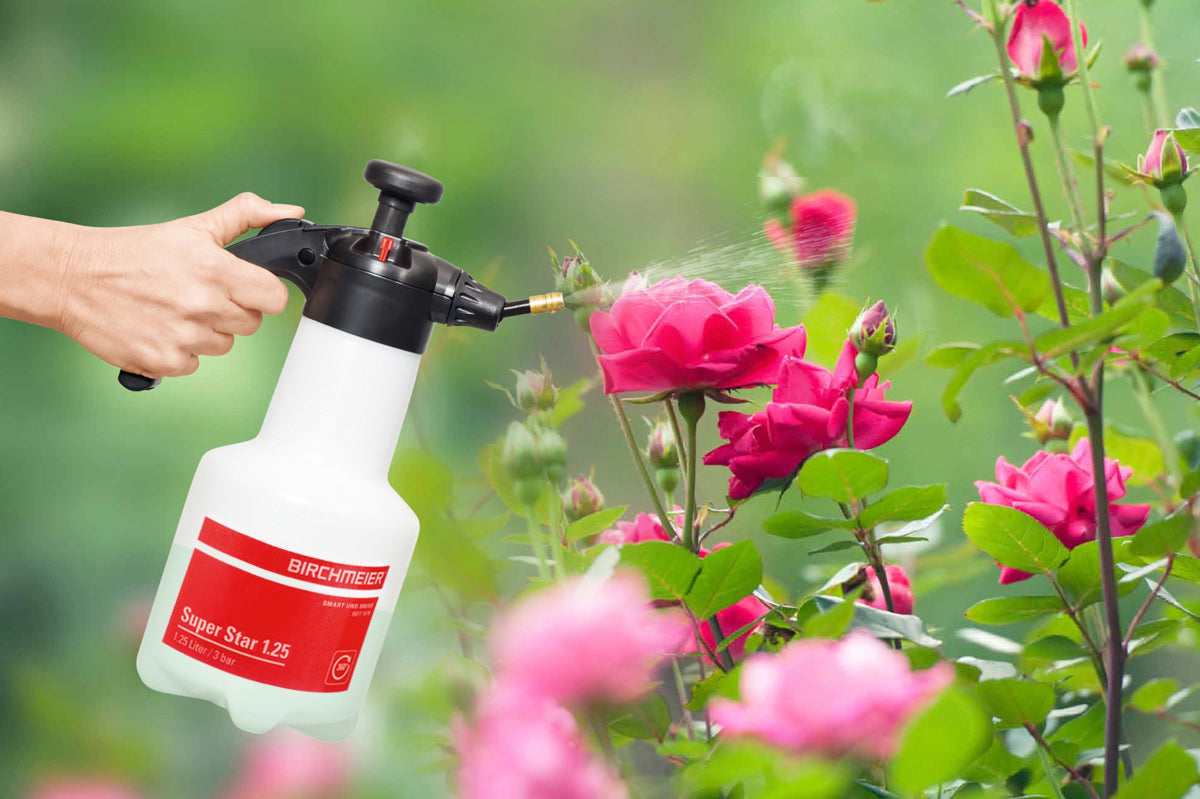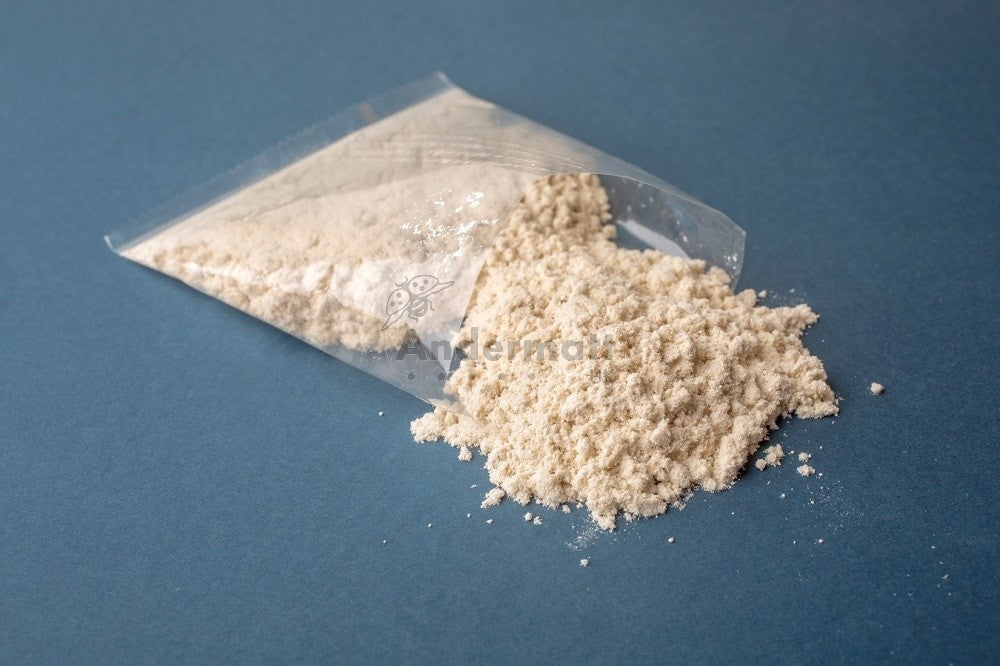What is the best organic fertiliser in the UK?
All plants need plenty of nutrients to grow and thrive. They will mostly get this from the soil, but sometimes we want to give them a little bit of help. A good fertiliser will provide all of the nutritional elements to support strong vigorous growth for beautiful plants.
What are fertilisers made of?
Fertilisers are concentrated sources of plant nutrients, they are used to improve plant growth and yields.
Why use fertilisers?
In the wild, plants are able to extract all the nutrition they need from soil. However, in a garden we often remove nutrients from the soil in the form of fruits, vegetables and trimmings which would otherwise be returned to the soil as a complete nutrient cycle ready for plants to eventually reuse.
Gardeners use fertilisers to help bring a number of benefits including:
- Faster plant growth and establishment
- Greater display of blooms
- Higher yield of edible fruits and vegetables
- Improve overall health of the plant

A lack of nutrients available to the plant results in symptoms such as weak and stunted growth, poor colour and a lack of flowers and fruit meaning plants are not able to perform to their best.
What are the two types of fertilisers?
There are two types of fertiliers: organic and chemical (or inorganic).
Organic fertilisers refer to their source rather than their suitability for organic growing. Generated from natural living materials (plant or animal), these can include seaweed, plants, manure, fish, horn, hoof, blood and bone. The nutritional content tends to be bound up within the materials within the fertiliser, resulting in a slower activity. The availability of the nutrition relies upon organisms within the soil breaking down the large organic molecules within the material so releasing the nutrients in a form plants can absorb.
Chemical fertilisers refer to materials which are from non-living sources such as mined minerals or manufactured (for example, nitrogen produced by the Harber Bosch process) synthetic compounds. The nutrition within in-organic fertilisers is in a form more readily available to the plant, and is therefore rapidly absorbed and used, giving faster results than standard organic fertilisers.
Whichever the type of garden fertiliser, they tend to include the three major plant nutrients:
- Nitrogen (N) – for green leafy growth
- Phosphorus (P) – for healthy root and shoot growth
- Potassium (K) – for flowering, fruiting and general hardiness
Garden fertilisers often also contain minor or micro-nutrients of which there are many playing a wide range of roles. Micro-nutrients are the nutrients the plant needs, only in smaller quantities.
What are examples of organic fertilisers?
Organic fertilisers can include seaweed, plants, manure, fish, horn, hoof, blood and bone.

What are the benefits of using organic fertiliser?
Organic fertilisers are usually more environmentally-friendly than chemical fertilisers, as they come from natural sources rather than being mined.

What are the disadvantages of organic fertiliser?
However, organic fertilisers are usually not as effective as chemical fertilisers.
1. Minerals may not ever reach the plant
This is because the nutritional content tends to be bound up within the materials within the fertiliser.
This means the nutrition isn’t at all guaranteed to reach the plant.
The availability of the nutrition relies upon organisms within the soil breaking down the large organic molecules within the material, releasing the nutrients in a form plants can absorb.
If the organisms aren’t present or aren’t present in sufficient amounts, or the soil experiences rainfall and washes it away, the nutrients that you paid for may never reach the plant at all, rendering the organic fertiliser useless or not very effective.
Whereas in chemical fertilisers, the nutrition is readily available to the plant as soon as it is in the soil.
Marketing for organic fertilisers try to promote ‘slow-release’ organic fertilisers as a good thing, but fail to mention this fact.

However, is the next generation of organic fertilisers. The nutrients are readily available to the plant as soon as it reaches the soil, because GroPure uses a unique extraction process to extract the NPK and micro-nutrients from the organic material (plant waste) before it is bottled.
This gives it the power of chemical fertilisers, but from an organic source.
2. Staining liquid and strong odour
Other disadvantages of organic fertilisers are that organic fertilisers in the UK market are often derived from seaweed, maize or sugar beet. These have high solid content (seen as their thick appearance and dark colour).
They tend to be a thick, brown sludge that easily stains and discolours leaves and clothing, and they also tend to have a strong stench which makes using them (especially on indoor plants) quite unpleasant.
GroPure is again revolutionary in this respect; although organic, it is a thin, pale liquid with no odour that makes adding it your plants easy and pleasant.

3. Nutrient levels are low
Chemical fertilisers can pick and choose their levels and ratio of N, P and K since they have been mined individually.
Organic fertilisers tend to have low NPK content with inconsistent results.
Again, GroPure is organic but because the minerals have been extracted, the NPK content and micro-nutrient content can be picked and chosen just like a chemical fertiliser.
Are fertilizers bad for the environment?
Chemical fertilisers are bad for the environment as they’re very energy-intensive to produce, since they mine the chemicals nitrogen, phosphorous and potassium used in the fertiliser (NPK). This gives them a huge carbon footprint. In fact, one of the largest parts of the carbon footprint of gardening is from the manufacturing of the fertilisers used.
However, some organic fertilisers are much better for the environment if they are made from plant waste. For example, GroPure is sourced from plant waste, making it a circular system with a very low carbon footprint.
Reducing your gardening footprint isn’t just about selecting a certain product, it is also affected by how you use that product. Best practice for using fertilisers in your garden:
- Fertiliser isn't needed during winter as plants move into semi-dormant or completely dormant state during winter in response to lower temperatures and light levels.
- Plants are most in need of nutrition before periods of activity, for example when they start to grow in spring. So a fertiliser application in late March will ensure the plant can take up the nutrients just as it needs them in April and May.
- Ensure the soil is moist when applying liquid fertilisers. This will help the fertiliser soak well into the soil and get the plant roots where it can be taken up by the plant.
- If you're growing seedlings in specific potting or seedling compost, these often have nutrients added to them and therefore there is no need to apply additional fertiliser for at least the first 6 weeks of growth.
- Soils high in clay or silt will hold more water and retain nutrients better, so will need less frequent applications. Fast-draining, high-sand content soils will require more frequent watering and fertiliser.
When should I use organic fertiliser?
GroPure can be applied year-round to meet the needs of plants, fruit, vegetables, trees and shrubs whether they are grown outside in soil pots or containers, indoors or in greenhouses.
What is the best organic fertiliser?
Without a doubt GroPure is the best organic fertiliser available in the UK.

GroPure is so different, it represents a whole new generation of organic fertilisers.
The main features that make GroPure unique and the best organic fertiliser are:
- It’s 100% organic but sourced from plant waste, making it sustainable and circular
- It uses a technologically-advanced extraction process to extract the minerals (both NPK and micro-nutrients) from the organic matter, giving it the power of a chemical fertiliser
- It’s a thin, pale liquid with no unpleasant odour making it easy to use
Technological advances have allowed pure nutrition to be extracted from plant waste. This gives the same environmentally-sustainable source, but with more readily available nutrition to the plant.
No longer is there a need to decide to choose natural organic fertiliser or chemical fertiliser, GroPure gives the benefit of both in one bottle.
How do you apply organic fertilizer to plants?
Organic fertiliser is a concentrate must be diluted before use. Add 10ml (one cap) of GroPure per 2 litres into a watering can and apply this to the soil around the base of the plant weekly.
Any water can be used; either domestic tap water or saved rain water.

Its low solid content means that, if some gets accidentally spilt on the leaves or flowers there will be no discolouration or stickiness.
Should you water after fertilizing plants?
No, there is no need to water after applying GroPure.
How long does organic fertilizer take to work?
Most organic fertilisers take time to work (if they work at all), whilst GroPure works instantly.
Should I fertilize potted plants?
Yes. Fertilizer is especially useful in indoor plants as they can often have their root development limited by the space available to them, which can limit their ability to find nutrients in the soil. Fertilise them once a week just like outdoor plants.
What is the best way to start an environmentally-friendly garden?
Arguably the easiest place to start is with your fertiliser. One of the highest carbon footprint inputs for modern gardening, reducing or replacing nitrogen fertiliser will reduce your carbon footprint because these products are so energy intensive to manufacture. GroPure offers an option to continue using fertiliser to grow beautiful healthy plants, with nitrogen sourced from plant waste, making this key gardening input part of a circular system.
Frequently Asked Questions about GroPure
What is GroPure?
GroPure is a novel plant-based organic liquid fertiliser. Suitable for all plants it is a plant feed concentrate which is easily diluted down and watered around the base of the plant.
What is the nutrient content of GroPure?
GroPure is an NPK fertiliser contains 3.05% Nitrogen, 1.71% Phosphorous and 5.8% Potassium. GroPure organic fertiliser also contains a mix of micro-nutrients designed to give your plants all the nutrition they need to stay healthy.
What plants is GroPure suitable to be used on?
GroPure is suitable for general use on any plant. It contains a mix of Nitrogen, Phosphorous and Potassium along with a mix of micro-nutrients to help all plants grow throughout the year.
What does suitable for Vegans mean?
GroPure is approved by The Vegan Society. This is because unlike many other organic fertilisers it does not contain any animals. Whether the user is a vegan or not, this helps demonstrate the environmentally sustainable plant-based source of this organic fertiliser.

Is GroPure suitable for organic growing?
Yes. GroPure is approved as an input for organic growing by both Organic Farmers & Growers (OF&G) and the Soil Association.




